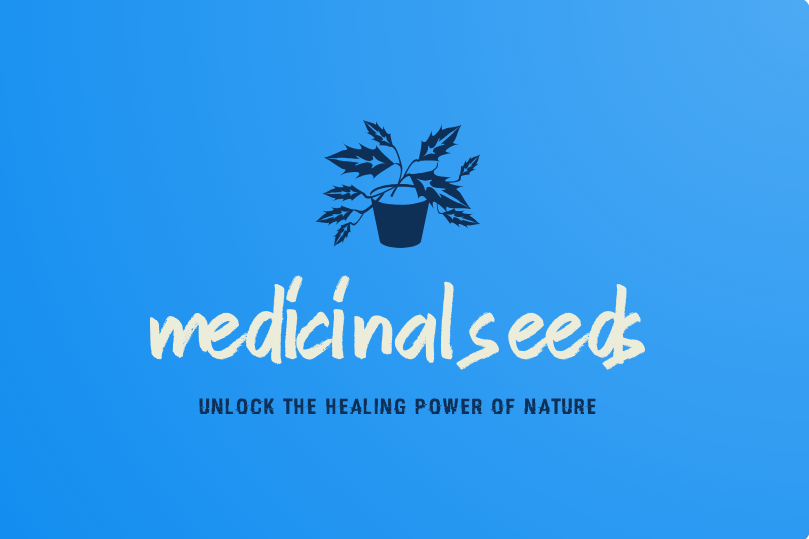Get your medicinal seed kit today
In today’s fast-paced world, where stress and anxiety have become a common occurrence, it’s no wonder that people are increasingly turning to natural remedies for relief. One such remedy that has been used for centuries is the power of medicinal plants. These plants, with their healing properties, offer a gentler and more holistic approach to treating various ailments. So, if you’ve been searching for natural solutions to improve your health and well-being, look no further – the secrets of medicinal plants are here to help.
Plants have been used for medicinal purposes since ancient times and have played a significant role in various cultures. The healing properties found in plants help to alleviate symptoms, boost our immune system, and restore balance to our bodies. Unlike synthetic drugs, which often come with unwanted side effects, medicinal plants offer a natural and gentle way to promote overall health.
One of the key advantages of medicinal plants is that they provide a holistic approach to healing. They don’t just target the symptoms; they address the root cause of the problem, promoting long-term well-being. Whether you’re dealing with chronic pain, digestive issues, or emotional distress, there’s likely a medicinal plant that can help.
Medicinal plants guide
With the vast array of medicinal plants available, it can be overwhelming to know where to start. To help you on your journey, we’ve compiled a guide to some of the most popular and effective medicinal plants that you can incorporate into your daily routine. From aloe vera and lavender to chamomile and ginger, each plant offers its unique set of benefits.
- Aloe Vera: Known for its soothing properties, aloe vera is excellent for treating burns, skin irritations, and sunburns. It also acts as a moisturizer and can help with various skin conditions like eczema and psoriasis.
- Lavender: Lavender is a versatile herb that promotes relaxation and better sleep. It can be used in the form of essential oil, dried flowers, or teas to alleviate stress and anxiety. Lavender also aids in relieving headaches and migraines.
- Chamomile: Chamomile has calming effects and is widely used to improve sleep quality. It also helps with digestive issues, menstrual cramps, and skin irritations. A cup of chamomile tea before bed can work wonders.
- Ginger: Ginger is a potent anti-inflammatory herb that aids in digestion and alleviates nausea. It’s a popular remedy for motion sickness and morning sickness in pregnant women. Ginger can be consumed in different forms, such as tea, fresh or dried, or even added to meals.
- Turmeric: Turmeric is packed with antioxidants and has anti-inflammatory properties. It helps to boost the immune system, reduce inflammation, and promote overall wellness. Including turmeric in your cooking or taking it as a supplement can be beneficial.
Remember, each plant has its unique properties and potential side effects, so it’s essential to do thorough research and consult with a healthcare professional before using any medicinal plants regularly.
Herbal medicine benefits
Herbal medicine, also known as herbalism or botanical medicine, is a branch of traditional medicine that utilizes plants’ healing properties to promote health and well-being. The benefits of herbal medicine are numerous, making it a popular choice for those seeking natural remedies. Here are a few key advantages of incorporating herbal medicine into your life:
- Fewer side effects: Unlike synthetic drugs, which often come with a long list of potential side effects, herbal medicine tends to have fewer adverse reactions. This is because plants contain a balance of compounds that work together synergistically, minimizing harmful effects.
- Holistic approach: Herbal medicine takes a holistic approach to healing, considering the whole person rather than isolating individual symptoms. This approach aims to address the root cause of the problem, resulting in long-term health benefits.
- Personal empowerment: Using herbal medicine empowers individuals to take an active role in their health and well-being. It allows people to connect with nature and be proactive in maintaining their health through the use of natural remedies.
- Sustainability: Medicinal plants are a sustainable resource when sourced responsibly. By using herbal medicine, you contribute to the preservation of natural environments and support sustainable practices.
- Cultural heritage: Herbal medicine has a rich history and is deeply rooted in various cultures around the world. Incorporating herbal remedies into your life allows you to connect with this cultural heritage and ancient wisdom.
While herbal medicine offers numerous benefits, it’s important to remember that it is not a substitute for professional medical advice. It’s always a good idea to consult with a qualified healthcare practitioner before incorporating herbal remedies into your routine, especially if you’re taking any medications or have an existing medical condition.
In conclusion, the healing properties of medicinal plants have been utilized by various cultures for centuries. These plants offer a natural and holistic approach to improving our health and well-being. By incorporating herbal medicine into our lives, we can experience the benefits of fewer side effects, a holistic approach to healing, personal empowerment, sustainability, and a connection to our cultural heritage. So, why not discover the secrets of medicinal plants and unlock their incredible potential?

